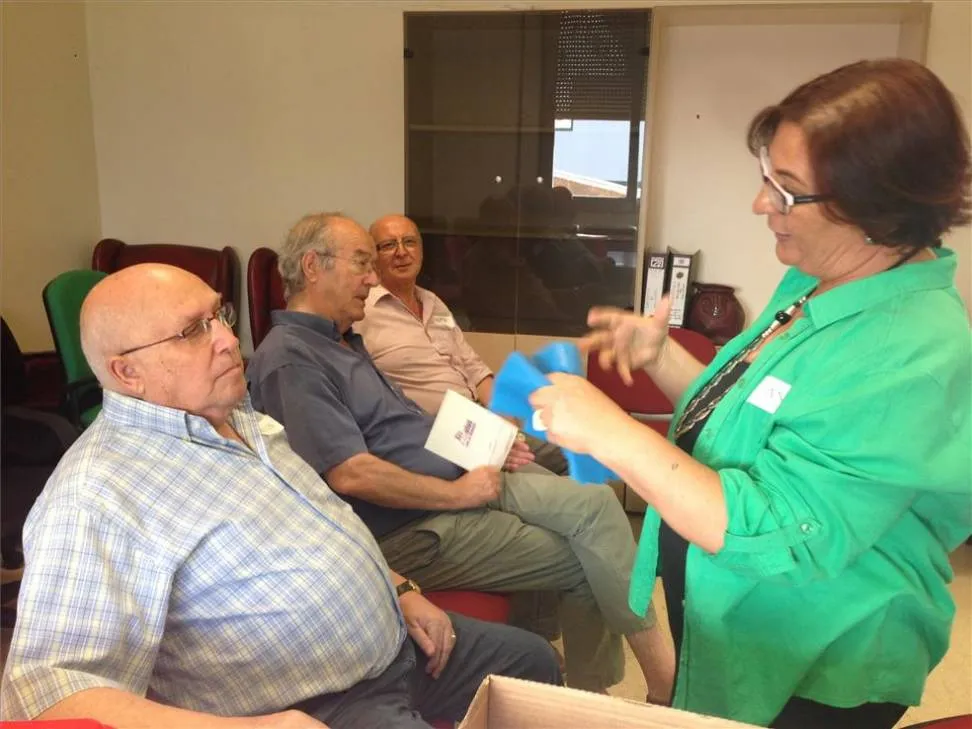When a person faces a diagnosis of a chronic disease, his life changes immediately.The need to make adjustments in your habits is an important impact for which it is recommended to seek adequate orientation and education.
In Extremadura, some pilot experiences of educational programs have been carried out that for different reasons have not been concluded, which is why a few months ago, it was pioneered, pioneered in the region and as a complement to the chronic strategy, thepatient classroom.
This project serves as a meeting point for patients who have the same chronic disease diagnosed on which to speak and expand knowledge, since in many occasions it does not deepen the changes that the ailment entails.
This is considered by the Primary Care Teams Coordinator of the Management of Mérida, Dr. Rocío Domínguez Guerra, who ensures that many patients are limited to following the instructions of the doctors, but without carrying out control: "The idea is to provide knowledge and knowledge andskills to take responsibility for the control of your illness.
They are poorly controlled, they do not fulfill the diet or the exercise- perhaps the problem is that we do not motivate them enough, because in a talk that you keep of 5 minutes you hardly get to know everything behind your life.When we diagnose a diabetes we are not aware that we are telling them something that changes their lives, and if we are not able to understand the problems that are generated day by day and form them so that they are overcoming by themselves the difficulties that a diet isDetermined, in the end you realize that the vast majority of them do not know and are very poorly controlled. "
Pilot Project
The patient's classroom has started his way in Mérida as a pilot project.Although it will be located in the health center of Mérida Norte, it is currently developed in urban I, Urban II and in Mirandilla with diabetic patients.According to the latest European health survey, it is estimated that about 80,000 Extremaduras suffer from this disease.
A figure to which we must add around another 23,000 people that in the region could currently have it without knowing it.These data assume that in the Autonomous Community the percentage of the incidence of diabetes is about 13.8 percent, a figure slightly higher than the national average, which is around 12 percent.This was explained last Friday the Minister of Health and Socio -health policy, Luis Alfonso Hernández Carrón, who joined one of the classroom workshops, which will end this week his first test.
Each classroom has a maximum of 10 patients who during five weekly periodicity workshops know the disease and their care.Thus, in the first session they are formed and reported on diabetes, in the second about the need to carry a balanced diet, in the third sports practice is encouraged, either through dance or group activities, and inThe fourth, more practically, are taught basic care in a diabetic foot.
The last one, which in the case of Urban II will take place on Friday, will be a review and teach the way in which to go to the doctor, instilling the values to be taken into account in the disease so that it is the patients who in their consultation withThe doctor demand information and be able to be responsible for their pathology.
monitoring
United to this formation, the patients have a monitoring platform called Eminens Econecta, for a correct self -management and self -care of the disease, seeing in themselves their objectives, clinical parameters and recommendations of thehealth professionals.Once the formation is finished, an evaluation will be carried out to the patients to assess the knowledge of the disease at the beginning and end of the workshops.
Although the classroom only treats type II diabetics, the idea, although in the long term, is to include other chronic pathologies such as EPO, Alzheimerchildren and their parents.


